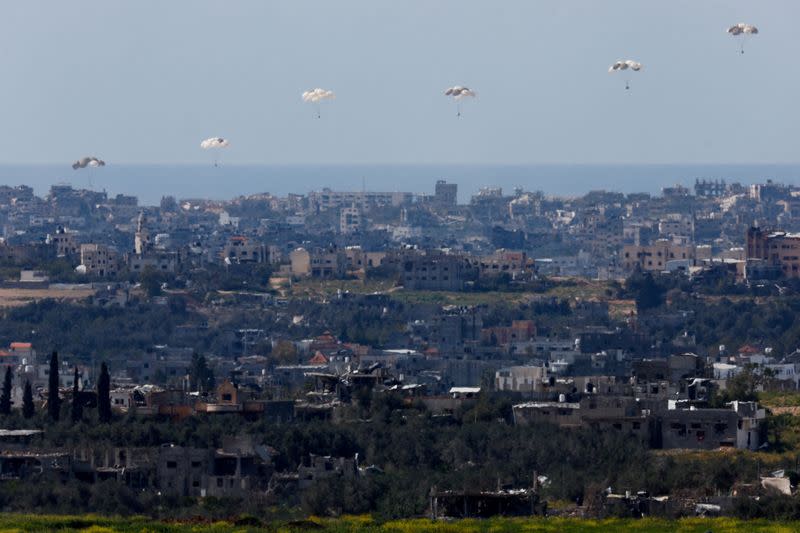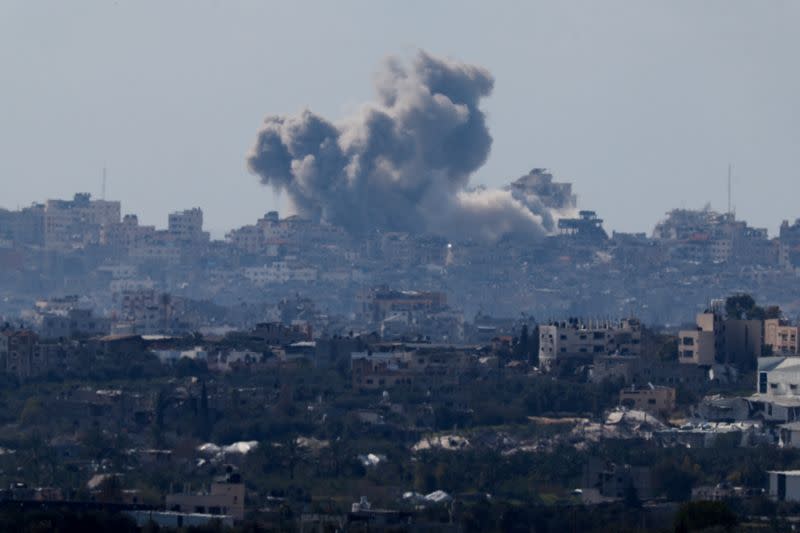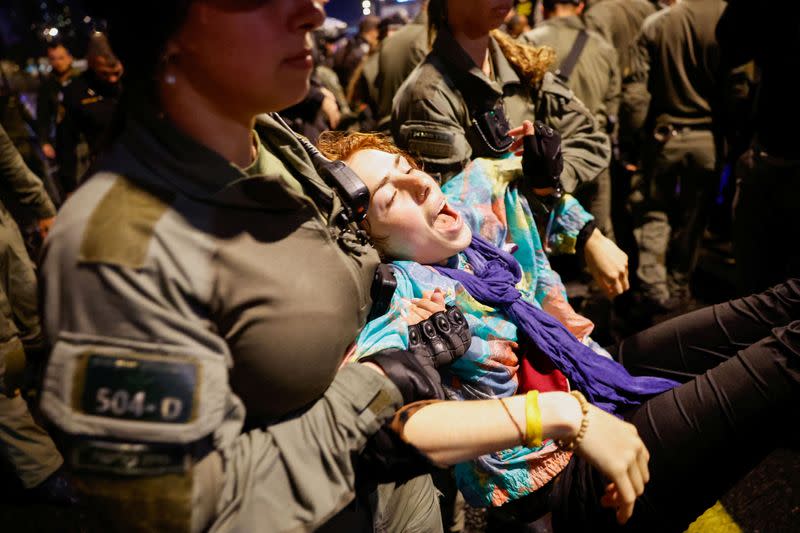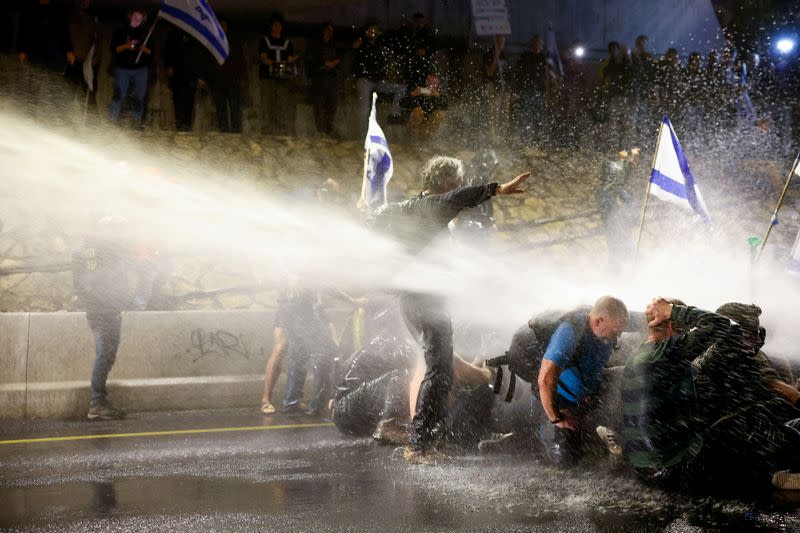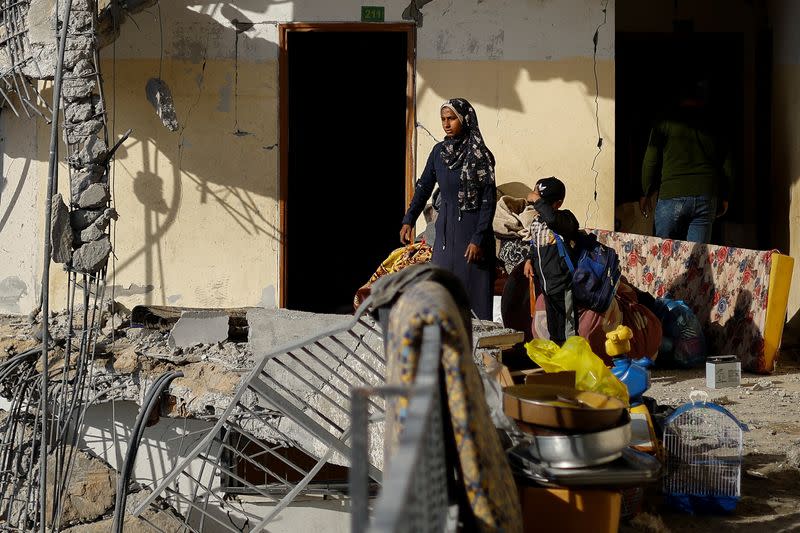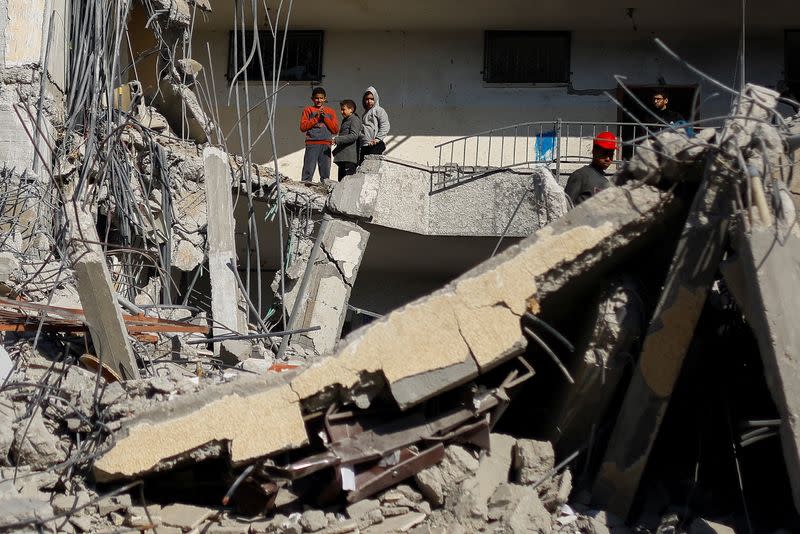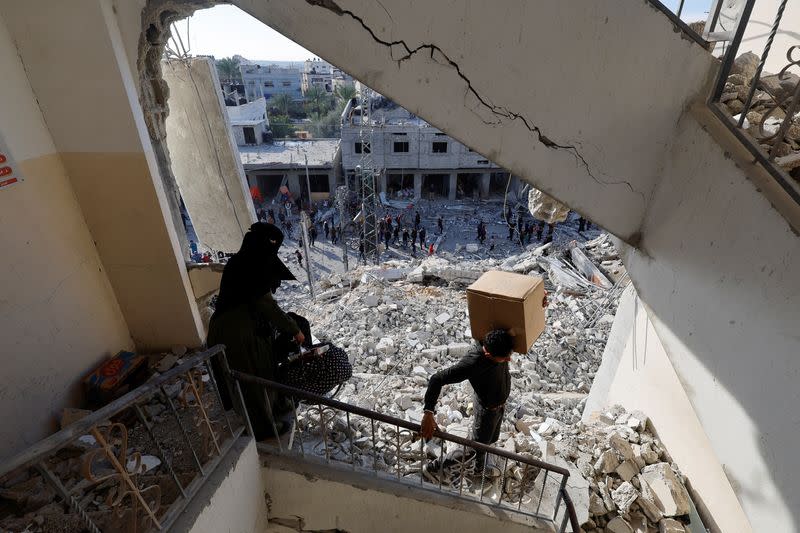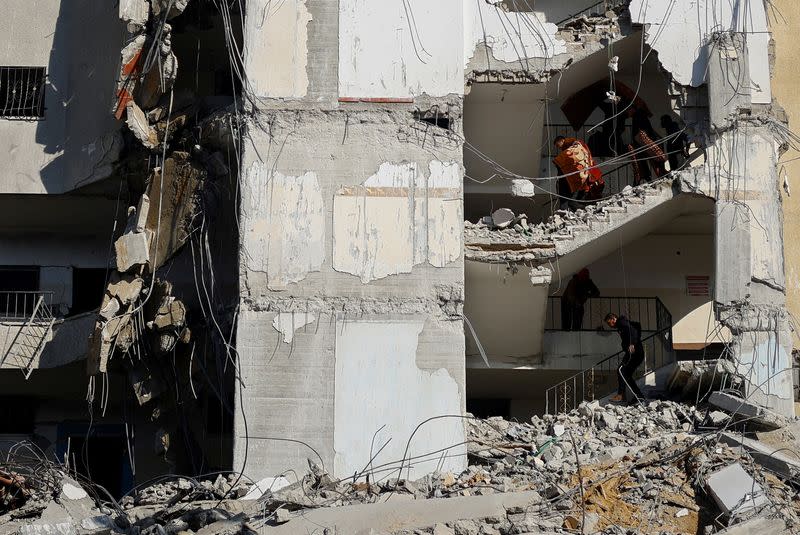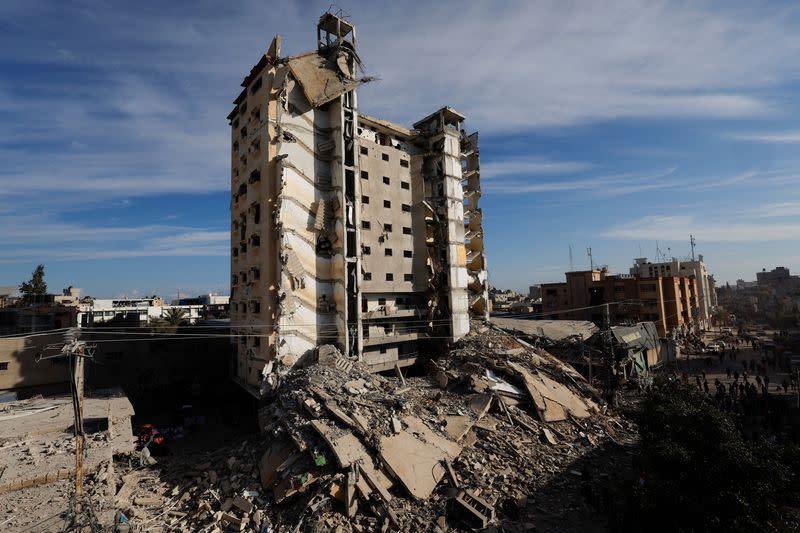Gaza talks mediators pushing to secure truce, Israel says
- Oops!Something went wrong.Please try again later.
- Oops!Something went wrong.Please try again later.
By Nidal al-Mughrabi and Bassam Masoud
CAIRO/RAFAH, Gaza (Reuters) -Efforts to secure a deal on a ceasefire between Israel and Hamas in Gaza are ongoing, Israel's intelligence agency Mossad said on Saturday, despite dimming hopes for a truce during the Muslim holy month of Ramadan.
Mossad chief David Barnea met on Friday with his U.S. counterpart, CIA Director William Burns, to promote a deal that would see hostages released, Mossad said in a statement. U.S. President Joe Biden said on Saturday that Burns remained in the region.
"Contacts and cooperation with the mediators continue all the time in an effort to narrow the gaps and reach agreements," Mossad said in the statement, which was distributed by Israeli Prime Minister Benjamin Netanyahu's office.
Israel and Hamas, the militant Islamist group that rules the Palestinian enclave and has been locked in a war with Israeli forces since its deadly Oct. 7 rampage in southern Israel, have traded blame over the apparent deadlock in talks in the run-up to Ramadan, which begins on or around March 10.
A Hamas source told Reuters the group's delegation was "unlikely" to make another visit to Cairo over the weekend for talks.
Egypt, the U.S. and Qatar have been mediating truce negotiations since January. The last deal struck was a week-long pause in fighting in November during which Hamas released more than 100 hostages and Israel freed about three times as many Palestinian prisoners.
Hamas blames Israel for the impasse in negotiations for a longer ceasefire and the release of 134 hostages believed still held in Gaza - saying it refuses to give guarantees to end the war or pull its forces from the enclave.
Mossad said Hamas was digging its heels in and aiming for violence in the region to spiral during Ramadan. Israeli officials have said that the war will end only with the defeat of Hamas, whose demands Netanyahu has called "delusional".
Biden, who has repeatedly called for a temporary ceasefire, said in an MSNBC interview that it was "always possible" that a deal could be reached before Ramadan. But he did not elaborate.
While reiterating steadfast U.S. support for Israel's right to defend itself, Biden told MSNBC his message to Netanyahu about the need to limit Palestinian civilian casualties is that he is "hurting Israel more than helping" by acting in a way "contrary to what Israel stands for."
Asked whether he would be willing to return to Israel, where he visited in mid-October in a show of solidarity, to address lawmakers, Biden said "yes." But he declined to elaborate.
'RELEASE THE HOSTAGES'
In a statement marking Ramadan, Hamas chief Ismail Haniyeh vowed the Palestinians would continue to fight Israel "until they regain freedom and independence".
Five months into Israel's air and ground assault on Gaza, health authorities there say nearly 31,000 Palestinians have been killed.
The war was triggered by the Oct. 7 attack by Hamas, in which 1,200 people were killed and 253 taken hostage, according to Israeli tallies.
At an anti-government protest in Tel Aviv on Saturday, some demonstrators blocked a highway and were dragged away by police. Another rally was led by families of hostages who called for their loved ones' release.
"The pain and anger are still running through my blood," said Agam Goldstein, a teenager freed from Gaza with her mother and two brothers in November, addressing the hostage-related rally. "Hamas, if you have any humanity left in you, release the hostages."
Charity workers loaded relief supplies bound for Gaza on to a barge in Cyprus as part of an international effort to launch a maritime corridor to a Palestinian population on the brink of famine.
The U.S. also has said its military will build a temporary floating dock off Gaza's coast to bring in aid, though it does not envision deployment of U.S. troops on the ground.
Israel was coordinating with the U.S. on the dock project for shipment of aid "after it undergoes full Israeli inspection", to be delivered to Gaza civilians through international organizations, said Israeli military spokesperson Rear Admiral Daniel Hagari.
A U.S. Navy logistics support vessel was headed for the eastern Mediterranean carrying the first equipment to be used to help establish the pier, the U.S. Central Command said.
Amid continuing tensions on the Israel-Lebanon border where Israeli forces and Hezbollah militants have regularly exchanged fire, Lebanese security sources said an Israeli strike killed a family of five and injured nine people in southern Lebanon.
The Israeli military said it was looking into the report.
'RED LINE'
In a somewhat contradictory exchange, Biden told MSNBC that Israel’s threatened invasion of Rafah in southern Gaza would be his “red line” for Netanyahu but then immediately backtracked, saying there was no red line and "I’m never going to leave Israel."
Concerned about further heavy civilian casualties, Biden has urged Netanyahu not to launch a major offensive in Rafah unless Israel has first crafted a plan for mass evacuation from the last area of Gaza it has not yet invaded with ground forces.
More than half of Gaza's 2.3 million people are sheltering in the Rafah area.
During a Biden campaign speech in the presidential election battleground state of Georgia, a protester yelled "genocide Joe" but was quickly drowned out by the crowd's chants of “four more years" and was removed by security.
“There’s a lot of Palestinians who are being unfairly victimized," Biden quickly responded.
Stepping up pressure in Gaza, Israel struck a 12-floor residential tower in Rafah, leaving dozens of families homeless, though no casualties were reported. Israel's military said the block was being used by Hamas to plan attacks on Israelis.
Israel's offensive has plunged Gaza into a humanitarian catastrophe. Much of the enclave is reduced to rubble and most of its population is displaced, with the U.N. warning of disease and starvation.
(Reporting by Nidal al-Mughrabi; Additional reporting by Noele Illiene, Gabrielle Tétrault-Farber, Adam Makary, Henriette Chacar, Maayan Lubell and Suleiman Al-Khalidi; Writing by Maayan Lubell and Matt Spetalnick; Editing by Giles Elgood, Helen Popper, Frances Kerry, Nick Macfie, Daniel Wallis and Marguerita Choy)
